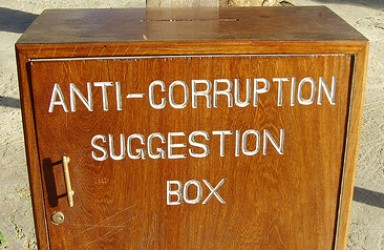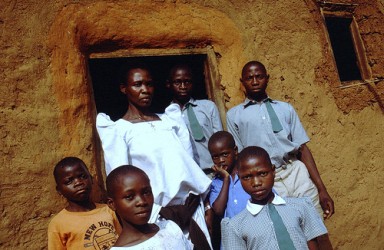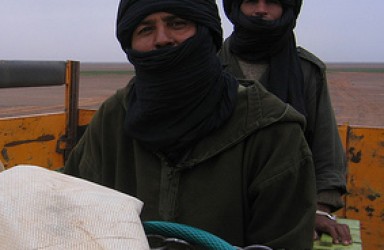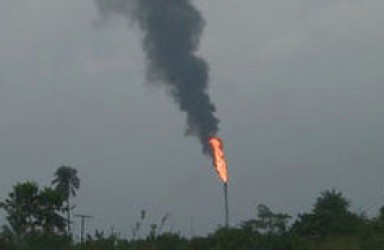Neopatrimonialism in Contemporary African Politics
Neopatrimonialism is the foundation stone for the system which drives African politics. Because it is social accepted, neopatrimonial politics have managed to permeate all political levels, affecting the distribution of resources and distorting development plans and diverting aid funds to ensure the survival of the system.
The Rwandan Genocide: The Guilty Bystanders
Each time genocide occurs, the world cries out ‘never again’. So why does no one stop these atrocities once they begin? Why are they simply ignored until they “resolve” themselves? This essay will be seeking to answer why the humanitarian intervention failed to prevent the genocide in Rwanda. It will focus on three main possible reasons why the intervention failed.
Terror in the Maghreb
Terrorism in the Islamic Maghreb (lit. “the West”) has been given relatively little attention in the post-9/11 era, in spite of a new journalistic and academic obsession with terrorism spanning nearly a decade. Terrorism in North Africa has been relegated to secondary importance, overshadowed by terror in Iraq, Afghanistan, and the Occupied Territories. Terror in the Maghreb is nonetheless on the rise, and has been shown to have intimate links with violence in other regions of the Islamic world such as Iraq.
Does Foreign Aid Benefit the Poor? Discuss Using Any Case in Africa as Illustration
In 2009, there is an estimated 1.4 billion people worldwide living on less than US$1 per day or in other words, in “absolute poverty”. Every year, at least 15 million children perish from starvation, a problem that would cost a mere US$13 billion to fix, yet these figures have been increasing over the past five decades.
Remember the Western Sahara? Conflict, Irredentism, Nationalism and International Intervention
Almost 35 years have passed since Spain left its former colony to its sad fate of blood and war. As all parties stand now, the conflict is far from being resolved. This paper is an attempt to discern the motives and forces behind the Western Saharan conflict from the 1975 crisis to the present.
Oil, Security and US Involvement in West Africa
In recent years, the United States has been quietly increasing its presence in West Africa with a variety of declared humanitarian interests. Discussion as to the ‘true’ motivations vary, from the need to shore up its role as global hegemon in the face of Chinese advances, to attempts to neutralise the territory as a base camp or staging ground for terrorists, to the need for new desire for US goods. The most pragmatic of the ‘true’ motivations offered is the need to secure oil supplies.
Shell and Society: Securing the Niger Delta?
Transnational Oil Companies struggle to operate in the face of widespread anti-oil protests and civil conflict in the Niger Delta. Shell, in particular, has faced considerable security challenges since the emergence of an active civil society in the early 1990s – most notably manifested by MOSOP. The brutal repression of that group proved ultimately counterproductive and Shell now aims to build a security-development nexus in partnership with local people. However, the policy is based on a paradox.
“In less developed countries politics and not mineral endowments is at the root of violent conflict”. Discuss.
In looking at the cases of Angola, Indonesia and Zaire it can be clearly demonstrated that though minerals are of significance they are only so because of political decisions. The discussion begins with an evaluation of the ‘resource curse’ argument looking closely at its empirical grounding and two main explanatory models: rent seeking and the rentier state. The robustness of this analysis is then questioned and the relationship of mineral resources and politics to the root of violent conflict is assessed through the use of detailed case studies.
The British Invasion of Egypt, 1882
Liberal fire-brand William Gladstone launched his election campaign to become British Prime Minister in 1880 during what was being described by contemporaries as the ‘Great Depression’. The ‘People’s William’ was elected primarily on the back of his promise to reverse the Conservative Party’s jingoistic, imperialist foreign policy under Benjamin Disraeli’s tenure.
European Security & Defense as a Model for East Asia & Africa
The European security regime cannot serve as a model for East Asia, as this region is conditioned by markedly different institutional, political, economic, and cultural factors that are manifest in strong preferences for informal, incremental and bilateral frameworks based upon the principles of non-interference, consensus-building, power-balancing and bandwagoning. Nevertheless, the OSCE pillar of the European security regime may be a more appropriate model for Africa.









